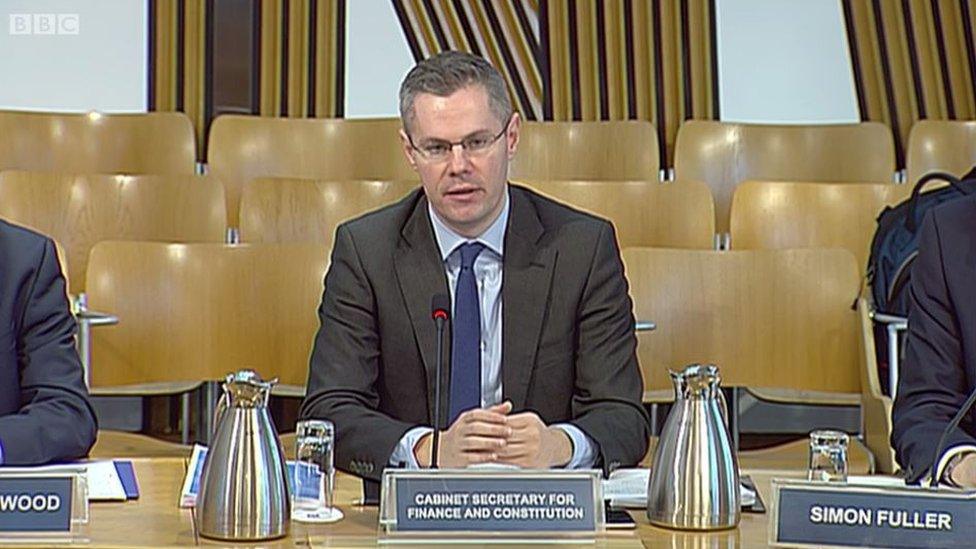Derek Mackay insists council budget settlement is 'fair'
- Published
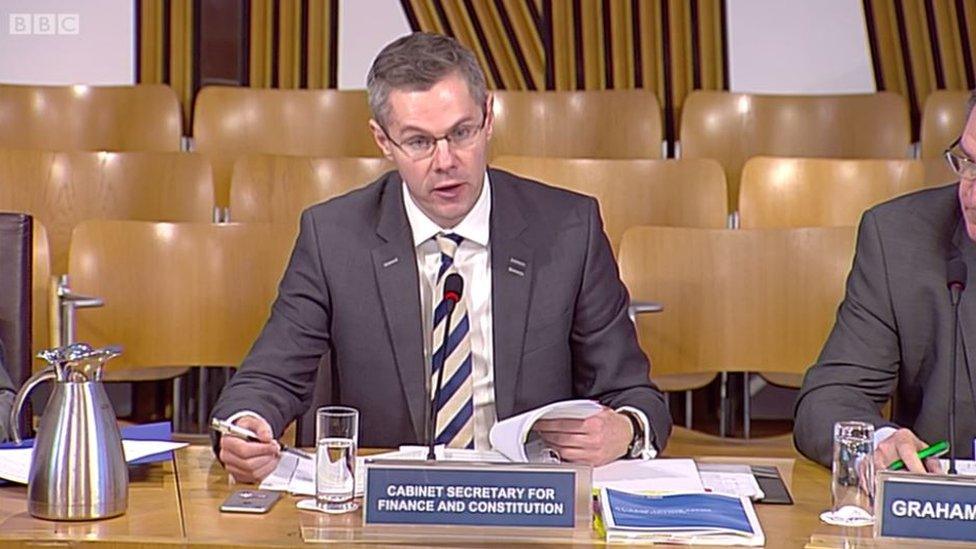
Derek Mackay argued that the total budget for local services was going up
Finance Secretary Derek Mackay has insisted his budget settlement for local government is "very fair".
Mr Mackay met finance committee members for the second time in a week to discuss his spending proposals.
Opposition members pressed the minister about funding for councils, with MSPs pointing to the core council grant falling while Mr Mackay argued support for local services will increase.
Mr Mackay also took questions sent in by the public via social media.
The finance secretary has said he is "positive" about getting his budget passed, amid ongoing talks with the Lib Dems and Greens.
He attended the committee to discuss his tax plans, which will be the subject of a separate vote prior to the final budget vote on 11 January.
Monday's meeting focused more on his spending plans, external, first with questions from MSPs and then a second session consisting of questions sent in by members of the public.
The first session hinged on a dispute between members about the settlement for local government.
Opposition members argued that core local government funding is falling in the budget, while Mr Mackay said additional funding for local services like schools and health and social care partnerships more than makes up for this shortfall.
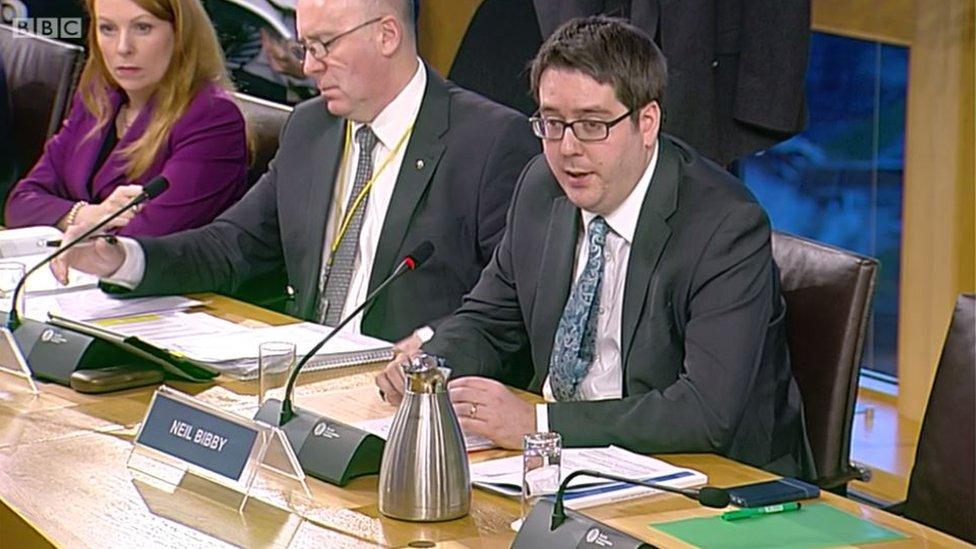
Labour's Neil Bibby said Mr Mackay was being "disrespectful" to councils
Labour's Neil Bibby said the finance secretary was being "disrespectful" to local authorities by asking them to accept his funding offer before Holyrood has signed off on the budget, which will require some opposition support to pass.
Mr Mackay said it was "reasonable to set out the terms of offer" to councils, noting that none had rejected the settlement so far. He said he had "had very positive negotiations with local government" around a "quite normal" and established timetable.
When Mr Bibby then asked why local government was being cut more than other departments, Mr Mackay replied that the budget for local services was "very fair".
The finance secretary said he was "not dismissing the pressures" on councils at a time of rising demand on the services they provide, but insisted the budget was "a fair package for local government".
'Losing out'
When Mr Mackay pointed out that councils are free to raise council tax by up to 3%, Tory finance spokesman Murdo Fraser said many would still need to make cuts even if they raised tax as much as possible.
Mr Mackay said it would be down to councils to decide how to deploy their resources. This drew an angry response from opposition MSPs on social media, with Labour's Daniel Johnson saying "it's like getting a pay cut but being told it's a rise because you could get an evening job".
Scottish Greens co-convener Patrick Harvie said even the "most generous" interpretation of the budget set out in the impartial parliamentary information centre report on it showed local government losing out.
Mr Mackay argued that the figures were "not comparing like with like", and insisted that other sources of funding for services should be taken into account.
And SNP MSP Willie Coffey argued that taking these other funds into account, the budget was "a better package for local authorities than what we had last year".
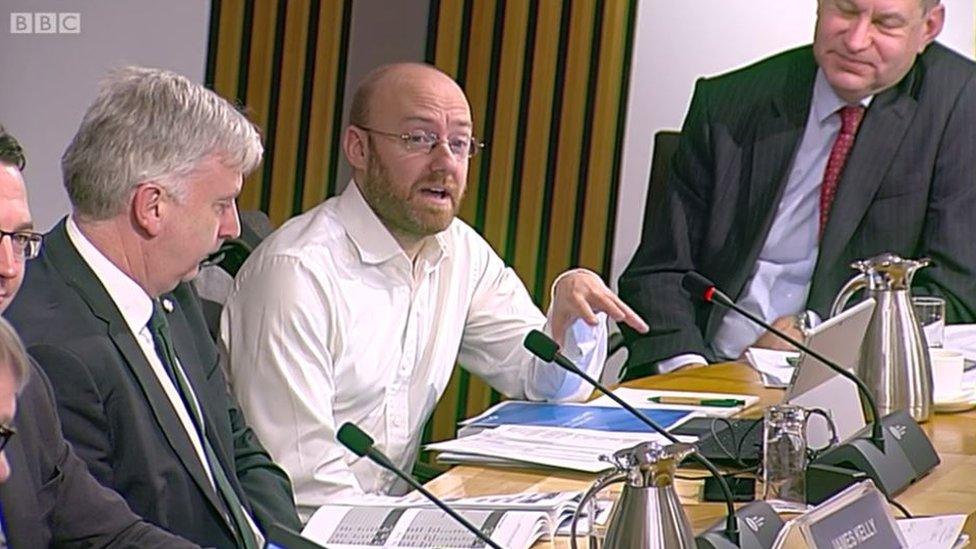
Green MSP Patrick Harvie said even the "most generous" view of the budget still meant cuts for councils

Analysis by BBC Scotland political reporter Philip Sim
Neil Bibby might have summed up the row over local government funding best when he simply said "we're not going to agree on the figures".
The settlement presented to councils by the government is not a simple question of maths; it's become distinctly political.
Really, the government and opposition are talking about two different sets of numbers. The opposition point to the core money going into council coffers, which is going down - although there's yet another debate on by how much.
The government prefers to include all the money for local services, including ring-fenced cash for schools and health and social care partnerships.
Some call this double counting, which Mr Mackay denies; his calculation is that outside the political bubble, people at home care much more about services than councils. When it comes down to it, they will pick cash for classrooms over councillors every time.
As Mr Bibby observes, the two sides are unlikely to come to an agreement, especially with council elections looming. Expect all parties to find their own personal spin on the matter during campaigning in May.
Later, Mr Mackay took budget questions sourced from social media. Hearteningly, all the contributions tweeted in were very sensible - a complete lack of predictable Budgety McBudgetface gags - so there's a good chance this could become a more common feature of scrutiny sessions in future.

The committee asked for people to send in questions using the Twitter hashtag #askthecabsec, saying "all admissible questions" would be published online and that the government would be invited to provide written responses to any not put to Mr Mackay.
Committee convener Bruce Crawford said MSPs wanted to "give the public the chance to put their questions to Derek Mackay" on his "highly significant" budget.
Questions put forward included queries about council tax, tax avoidance and evasion, and poverty.
A number of the questions sent in asked about HMRC office closures, which Mr Mackay said was a UK government decision which there had been a great deal of opposition to.
He said he had been informed that staff moves would not impact on the collection of Scottish income tax, adding that how HMRC deploys its resources is its own decision.
Another question queried whether there should be a revaluation of council tax bands; Mr Mackay said there were currently no plans to update from existing 1991 values, as this would be "an unacceptable shock to the system" and an "administrative burden".
- Published13 January 2017
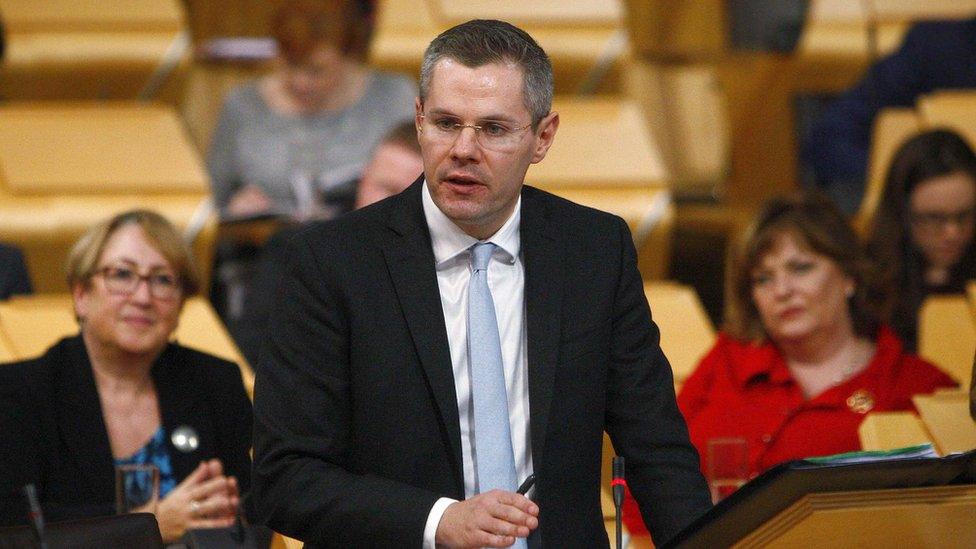
- Published12 January 2017
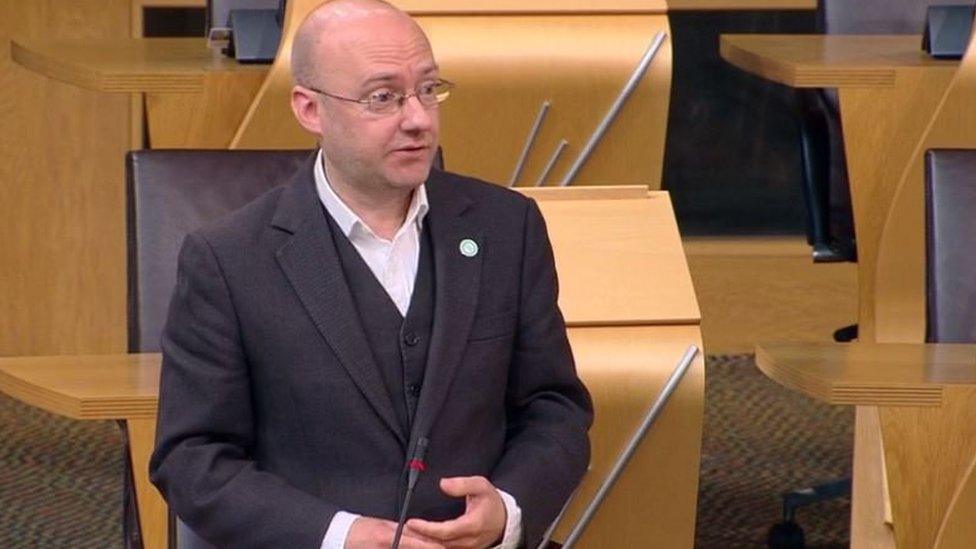
- Published11 January 2017
